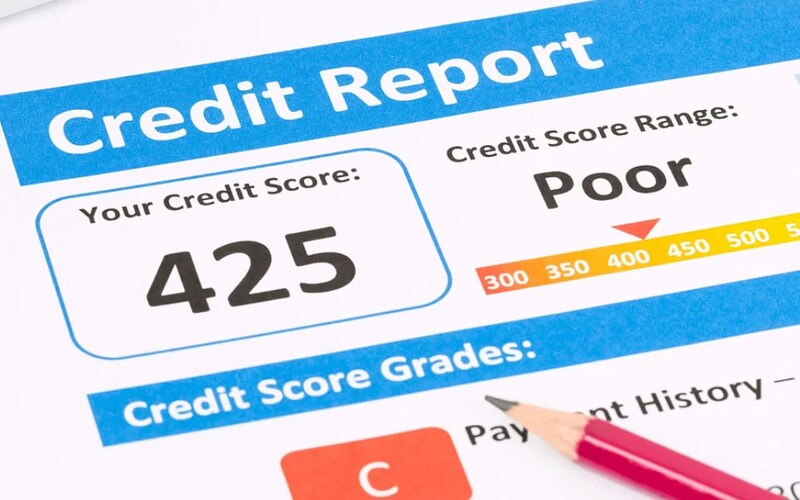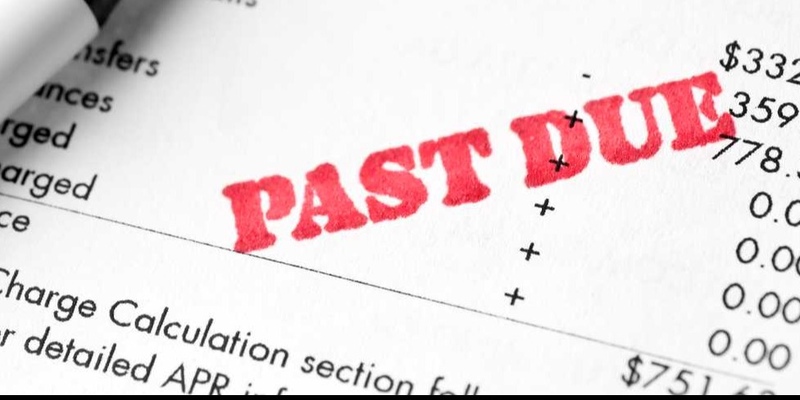All You Should Know About Debt Related Statute of Limitations
Aug 18, 2024 By Rick Novak
The concept of debt statute of limitations is about a time limit on how long creditors can legally take action against debtors for unpaid debts. When this period ends, it means that the debts are now time-barred and no longer subject to legal actions from creditors. But this doesnt mean the debt disappears. It continues to exist, and the creditors can keep trying to get their money back through other ways. This article will explore various aspects of the statute of limitations related to debts.
Implications for Credit Reports
The timeframe set by the statute of limitations (SoL) doesn't make a debt vanish from your credit report. Usually, debts stay on these reports for seven years no matter if the SoL has ended or not. This means that even after this time limit is over, unpaid debts can still affect a person's credit score and their ability to borrow money.

Credit reports are like a complete record of a person's financial past. They affect their chance of getting loans, mortgages, and sometimes even specific job roles. Lenders look at credit reports to see how likely someone is to pay back the money they borrow. Having a good credit report is important for keeping financial health and stability in place.
- Note: Maintaining regular checks on credit reports can help identify errors or inaccuracies that may negatively impact credit scores. Addressing such discrepancies promptly can prevent potential setbacks in securing credit or loans.
- Caution: Closing old accounts or paying off debts does not necessarily remove them from credit reports. Closed accounts and settled debts may still appear on credit reports for the duration of the reporting period, affecting credit scores accordingly.
Credit Reporting Agencies
Credit reporting agencies, such as Equifax, Experian, and TransUnion, are responsible for compiling individuals' credit histories. These agencies gather information from creditors and other sources to generate credit reports, which lenders use to assess creditworthiness. The seven-year reporting period for most debts starts from the date of the first delinquency, after which the debt is removed from the credit report.
Credit reporting agencies use diverse scoring models for assessing creditworthiness, each with its algorithms and criteria. Knowing these models can aid people in predicting how their financial actions might influence their credit scores.
- Consideration: Individuals can request free copies of their credit reports from each of the major credit reporting agencies once every 12 months through AnnualCreditReport.com. Regularly reviewing these reports can help monitor for any discrepancies or fraudulent activity.
- Fact: Credit reporting agencies must investigate disputed information on credit reports within a reasonable timeframe, typically 30 days. If inaccuracies are found, they are required to correct or remove them from the report.
Exceptions to the Seven-Year Rule
The period for reporting certain types of debts could be different. For instance, bankruptcies can stay on credit reports for up to ten years while tax liens might remain. for seven years or even more if they are not paid off yet. Moreover, specific states have their unique statutes of limitations that could differ from the federal standard.
Knowing the exact reporting periods for each kind of debt is very important in correctly handling your credit history and preparing for financial responsibilities over some time.
- Noteworthy: While some debts may be removed from credit reports after the specified period, creditors may still attempt to collect on them through other means, such as contacting debtors directly or selling the debts to third-party collection agencies.
- Reminder: Paying off a debt does not necessarily reset the clock on its reporting period. Even if a debt is settled or paid in full, it may remain on credit reports for the remainder of the reporting period.
Impact on Credit Scores
Unsettled debts, even if they have reached the time limit for legal action, can still affect credit scores. Different elements are taken into account by credit scoring models such as payment background, money owed, duration of credit history, new credits, and types of credits used. Accounts that are not paid on time or sent to collections can reduce the credit score making it difficult to get loans or good interest rates.
Keeping a high credit rating is crucial for obtaining good financial chances, like low-interest loans and credit cards that offer rewards. It can also influence whether you are accepted for rental housing or not.
- Not to Forget: Timely payments and responsible credit utilization are key factors in maintaining a positive credit score. Consistently paying bills on time and keeping credit card balances low can help improve creditworthiness over time.
- Fact: Credit inquiries, whether for new credit applications or background checks, can temporarily lower credit scores. However, multiple inquiries within a short period for the same purpose, such as mortgage or auto loan shopping, are typically treated as a single inquiry to minimize their impact on credit scores.
Debt Collection Practices
Even though the time limit for legal actions may have ended, collectors of debts could still try to collect on old debts. They should follow the rules set by the Fair Debt Collection Practices Act (FDCPA) that prevent any kind of abusive, deceitful, or unfair practices. Those who owe money have certain rights under FDCPA such as disputing a debt and asking for validation from the collector.

Knowing your rights as per the Fair Debt Collection Practices Act is very important when you interact with debt collectors. One such right that debtors possess is to ask for validation of their debts, which means the collector must give proof showing that this debt belongs to them and it's valid.
- Consideration: Debtors should keep detailed records of all communications with debt collectors, including letters, emails, and phone calls. Documentation can serve as evidence in case of disputes or legal proceedings.
- Caution: Ignoring communication from debt collectors does not make the debt disappear. Failure to address debts may result in escalated collection efforts, including lawsuits and wage garnishment. It's essential to respond to debt collection attempts promptly and seek assistance if needed.
Conclusion
Comprehending what occurs with debt after seven years is linked to comprehending how the law (statute of limitations), credit reporting, and debt collection function together. Though a debt can become unenforceable once the statute of limitations runs out, it could still influence credit scores and financial stability. People need to understand their rights and obligations in managing debts and reporting them to handle financial difficulties well.

10 Easy Post-Account Closure Steps To Secure Your Assets

Best Identity Theft Protection Services

Steps to Making a Profit in Crude Oil Trading

Top Biotech Stocks

Your Guide to Achieving and Maximizing an 800 Credit Score

Why US Dollar Holds Global Currency Status: A Comprehensive Guide

What Does the S and P 500 Index Measure and How Is It Calculated?

All You Should Know About Debt Related Statute of Limitations

High-Value Home Insurance: What is it?

Unlocking Six Best Free Checking Accounts

12 Best Books on Warren Buffett
